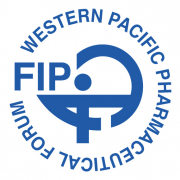New Merck Anti-Clotting Drug Fails to Impress as Brain-Bleeding Triples
15 November 2011
ORLANDO, Florida–An experimental anti-clotting drug from Merck & Co. failed to meet the main goal of improving a host of cardiovascular problems in a large study and tripled the risk of bleeding in the brain, researchers said on Sunday.
The prospects for vorapaxar had already been severely dented after a safety committee overseeing this and another large study of the drug in January said it was not appropriate in patients who had suffered a stroke, due to excess bleeding.
While Wall Street analysts had largely written off vorapaxar, once seen as possibly generating US$3 billion in annual sales, there were hopes the Tracer study results presented on Sunday could somewhat revive the product.
Patients on vorapaxar did see a lower incidence of heart attacks, according to the results presented at the American Heart Association scientific sessions in Orlando, and Merck said it was still awaiting results from the second study, due early next year, before making any decisions on the medicine’s future.
For full content, please refer to the source!
New Merck Anti-Clotting Drug Fails to Impress as Brain-Bleeding Triples
